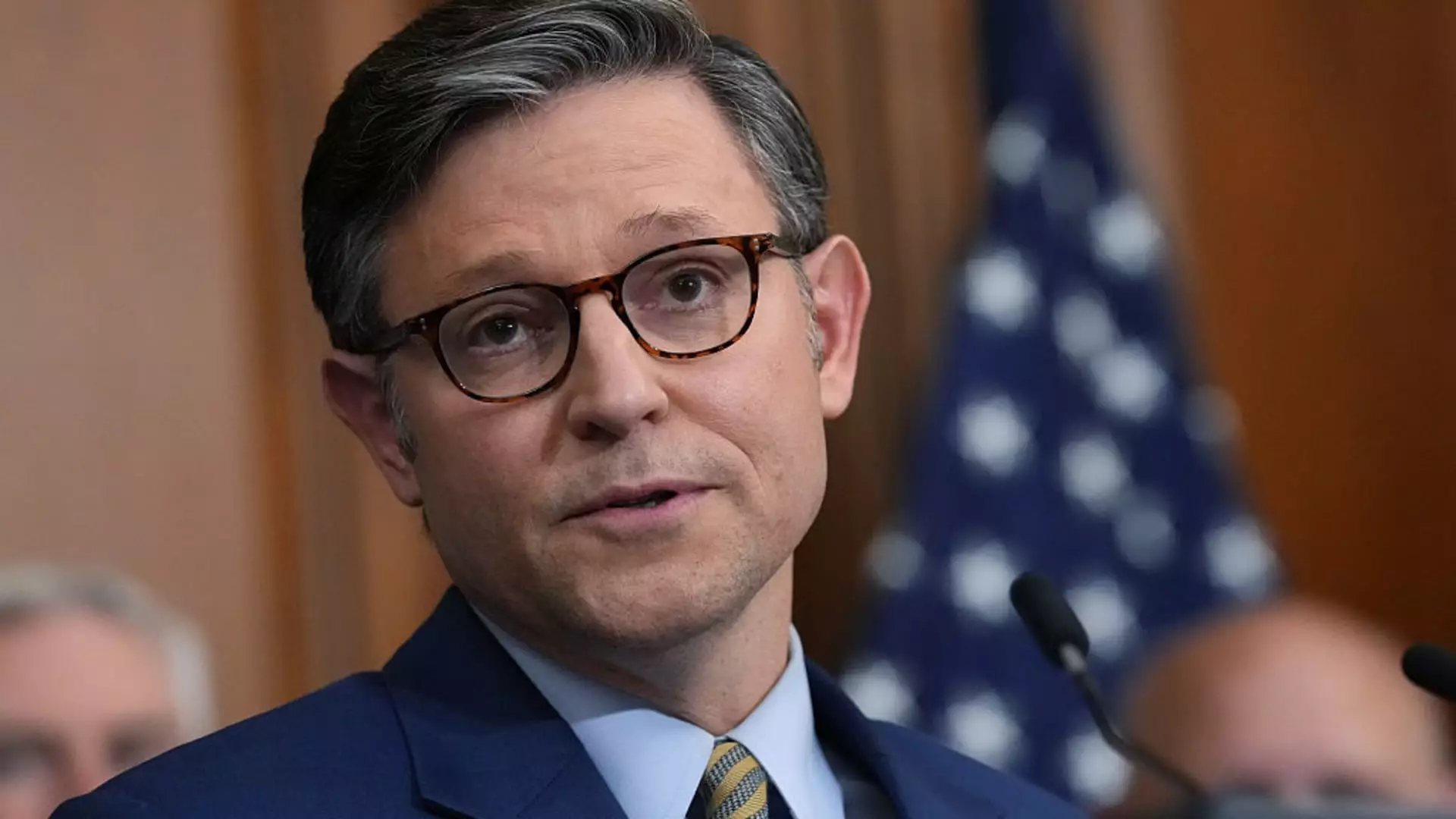In recent discussions surrounding healthcare reform, Rep. Mike Johnson’s steadfast defense of Medicaid cuts in the House Republicans’ budget bill has shocked many observers. Johnson’s remarks signal a troubling disregard for the vulnerable populations who rely on Medicaid for essential health services. He attempts to reframe the narrative by asserting that the cuts, backed by new work requirements, would only see “4.8 million people” lose access if they choose not to comply. This rhetoric astoundingly places the blame on those in need instead of acknowledging the systemic shortcomings and barriers that exist in fulfilling these requirements.
Johnson’s insistence that these “common sense” measures are necessary feels disingenuous at best. The reality is that imposing work or volunteer obligations on able-bodied individuals, particularly in a volatile job market, is simply another way to vilify those who are already struggling. The American job landscape is fraught with instability, and forcing individuals to “work” for their healthcare at a time when many are juggling precarious employment makes little sense. Here lies a fundamental question: Is it truly a burden for those in need to be asked to jump through bureaucratic hoops, or is it an unjust obstacle rooted in stigma?
Fueling Backlash Amidst the Public’s Outcry
The fallout from the Republicans’ decision to cut funding for crucial welfare programs has not gone unnoticed. Constituents are expressing their anger and frustration in town halls across the nation, and this pushback should not be underestimated. The booing of representatives like Mike Flood and Ashley Hinson serves as a resounding alarm, a signal that the American populace is beginning to awaken to the potential harms of these proposed cuts. These issues transcend party lines, as shown by Senator Josh Hawley’s op-ed, which boldly argues against the moral bankruptcy of dismantling healthcare safety nets for the working poor. Hawley dares to ask the question that many are too afraid to voice openly: why are we punishing the very people who are striving to make a better life for themselves?
Johnson’s comments about these cuts being simple “enforcement” of policy, while diminishing the complexity of Medicaid access, are not just misguided—they are misleading. The burdensome nature of increased paperwork and stringent eligibility checks not only complicates access to healthcare but also disproportionately affects marginalized communities. Indeed, the new reporting requirements could very well lead to millions losing their coverage from bureaucratic errors, a concern raised forcefully by Democrats like Senator Raphael Warnock. This isn’t simply an issue of compliance; it’s a matter of equity and accessibility in the face of a public health crisis.
Repudiating a Callous Approach to Healthcare
Critics of the bill are rightly concerned about its long-term implications. By framing these changes under the guise of personal responsibility and self-sufficiency, lawmakers like Johnson ignore the fact that countless individuals may not have the means or opportunity to navigate these new hurdles. The rhetoric employed by Republicans borders on cruelty; it pathologizes poverty in a way that fundamentally undermines the ethos of the American Dream. The suggestion that the ability to obtain healthcare coverage and benefits equates to a lack of motivation is an affront to the struggles faced by many.
This legislation sends a stark message: the worthiness of individuals is determined not by their humanity, but by their productivity in the marketplace. Such a philosophy disintegrates the foundational belief of shared responsibility in a democratic society. When did caring for the well-being of our neighbors become a negotiable commodity? If Americans are to accept the notion of a “big, beautiful bill,” they deserve to understand the true costs of that beauty—a dire landscape of healthcare deprivation for the most vulnerable among us.
As this contentious issue heads to the Senate, it is imperative that legislators take a step back and genuinely reflect on the implications of their decisions. If the Republican party’s focus on punitive measures continues, they risk alienating not just their constituents, but the very essence of what it means to be a society grounded in compassion and mutual support.


Leave a Reply